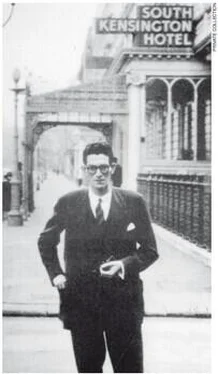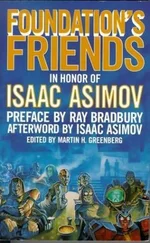Ben Macintyre - A Spy Among Friends
Здесь есть возможность читать онлайн «Ben Macintyre - A Spy Among Friends» весь текст электронной книги совершенно бесплатно (целиком полную версию без сокращений). В некоторых случаях можно слушать аудио, скачать через торрент в формате fb2 и присутствует краткое содержание. Год выпуска: 2014, ISBN: 2014, Издательство: Bloomsbury Publishing, Жанр: Старинная литература, на английском языке. Описание произведения, (предисловие) а так же отзывы посетителей доступны на портале библиотеки ЛибКат.
- Название:A Spy Among Friends
- Автор:
- Издательство:Bloomsbury Publishing
- Жанр:
- Год:2014
- ISBN:9781408851746
- Рейтинг книги:5 / 5. Голосов: 1
-
Избранное:Добавить в избранное
- Отзывы:
-
Ваша оценка:
- 100
- 1
- 2
- 3
- 4
- 5
A Spy Among Friends: краткое содержание, описание и аннотация
Предлагаем к чтению аннотацию, описание, краткое содержание или предисловие (зависит от того, что написал сам автор книги «A Spy Among Friends»). Если вы не нашли необходимую информацию о книге — напишите в комментариях, мы постараемся отыскать её.
A Spy Among Friends — читать онлайн бесплатно полную книгу (весь текст) целиком
Ниже представлен текст книги, разбитый по страницам. Система сохранения места последней прочитанной страницы, позволяет с удобством читать онлайн бесплатно книгу «A Spy Among Friends», без необходимости каждый раз заново искать на чём Вы остановились. Поставьте закладку, и сможете в любой момент перейти на страницу, на которой закончили чтение.
Интервал:
Закладка:
Major Felix Cowgill was the model of the old-style intelligence officer: a former officer in the Indian police, he was rigid, combative, paranoid and quite dim. Trevor-Roper dismissed him as a ‘purblind, disastrous megalomaniac’, and Philby, privately, was equally scathing. ‘As an intelligence officer, he was inhibited by lack of imagination, inattention to detail and sheer ignorance of the world.’ Cowgill was ‘suspicious and bristling’ towards anyone outside his section, blindly loyal to those within it, and no match for the Philby charm.
Philby never formally applied for the job, and Cowgill never formally offered it, but after one long, bibulous evening, Philby emerged as the new head of Section V’s Iberian department, a job which, as Philby happily noted, entailed wider responsibilities as well as ‘personal contacts with the rest of SIS and MI5’. Before Philby took up the post, however, Valentine Vivian – known as ‘Vee-Vee’ – the deputy head of MI6, decided to have another chat with Philby’s father. Hillary St John Bridger Philby was a figure of considerable notoriety. As adviser to Ibn Saud, the first monarch of Saudi Arabia, he had played (and would continue to play) a key role in the oleaginous politics of that region. He had converted to Islam, taking the name Sheikh Abdullah, spoke Arabic fluently, and would eventually marry, as his second wife, a slave girl from Baluchistan presented to him by the Saudi King. He remained, however, quintessentially English in his tastes, and wildly unpredictable in his opinions. The elder Philby’s opposition to the war had seen him arrested and briefly imprisoned, an episode that did no harm to his own social standing, or his son’s career prospects. Over lunch at the club, Colonel Vivian asked St John Philby about his son’s politics.
‘He was a bit of a communist at Cambridge, wasn’t he?’
‘Oh that was all schoolboy nonsense,’ St John Philby airily replied. ‘He’s a reformed character now.’
Nicholas Elliott, meanwhile, was making a parallel career move. In the summer of 1941, he was also transferred to Section V, with responsibility for the Netherlands. Henceforth Philby would be fighting German espionage in the Iberian Peninsula, and Elliott would be doing the same in Nazi-occupied Holland, from the next-door office. Each would be paid a salary, in cash, of £600 a year and neither, in accordance with longstanding secret services rules, would pay any tax. Philby and Elliott were now fighting shoulder to shoulder in the ‘active pursuit and liquidation of the enemy intelligence services’.
*
Section V was not housed in London with the rest of MI6, but headquartered in Glenalmond, a large Victorian house in King Harry Lane, St Albans, some twenty miles north of the capital, codenamed ‘War Station XB’. Kim Philby and Aileen rented a cottage on the outskirts of the town.
Philby had been introduced to his future wife, on the day war was declared, by Flora Solomon, a friend from Cambridge. The daughter of a Jewish-Russian gold tycoon, Solomon was another exotic bloom in the colourful hothouse of Philby’s circle: as a young woman she had had an affair with Alexander Kerensky, the Russian Prime Minister deposed by Lenin in the October Revolution, before going on to marry a British First World War general. In 1939, she was hired to improve working conditions by Marks and Spencer, and here she met and befriended Aileen Furse, a store detective in the shop’s Marble Arch branch. ‘Aileen belonged to that class, now out of fashion, called “county”,’ wrote Solomon. ‘She was typically English, slim and attractive, fiercely patriotic.’ Working undercover, in her twinset and raincoat, she was virtually invisible when discreetly policing the aisles of Marks and Spencer. Aileen tended to disappear in a crowd, hanging back, watchful and careful. Her father had been killed in the First World War, when she was just four years old, and her upbringing in the Home Counties had been strictly conventional, boring and quite lonely. Secretly, she was ‘subject to depressions’. Aileen Furse and Kim Philby met over drinks at Solomon’s Mayfair home. Philby began talking about his experiences as a correspondent in Spain. ‘He found an avid listener in Aileen,’ wrote Solomon, and ‘the next I knew they were sharing a flat.’
Their union, it seemed to Elliott, was an ideal one, founded on a shared love of good company. Elliott liked Aileen almost as much as he liked Philby, an affection that deepened after he developed diabetes and she gently nursed him back to health. ‘She was highly intelligent,’ wrote Elliott, ‘very human, full of courage and had a pleasant sense of humour.’ Indeed, Aileen was just the sort of wife he hoped for himself: loyal, discreet, patriotic, and willing to laugh at his jokes. The Philbys’ first child, a daughter, was born in 1941; a son followed the next year, and another the year after that. Philby was a doting father, Elliot noted approvingly, bursting with ‘parental pride’.
The Philby home became a gathering place for the young intelligence officers of Section V, an out-of-town version of the Harris salon in London, where the doors, and various bottles, were always open. Graham Greene, then one of Philby’s deputies, recalled the ‘long Sunday lunches in St Albans when the whole subsection relaxed under his leadership for a few hours of heavy drinking’. Philby was adored by his colleagues, who recalled his ‘small loyalties’, his generosity of spirit, and his distaste for petty office politics. ‘He had something about him – an aura of lovable authority like some romantic platoon commander – which made people want to appear at their best in front of him. Even his senior officers recognised his abilities and deferred to him.’
Section V was a tight-knit little community, just a dozen officers and their deputies, and a similar number of support staff. Officers and secretaries were on Christian-name terms, and some were on more intimate terms than that. Philby’s ‘merry band’ included his old school friend Tim Milne, a jovial eccentric named Trevor Wilson, who had formerly been ‘a purchaser of skunk excrement in Abyssinia for the French perfume company Molyneux’, and Jack Ivens, a fruit exporter who spoke fluent Spanish. The local townsfolk were led to believe that the educated young men and women in the big house were a team of archaeologists from the British Museum, excavating the ruins of Verulamium, the Roman name for St Albans. Mrs Rennit, the cook, served solid English fare, and fish and chips on Fridays. At weekends, they played cricket on the pitch behind Glenalmond, before repairing to the King Harry pub next door.
Colonel Cowgill was the boss, but Philby was the animating spirit of the group: ‘The sense of dedication and purpose to whatever he was doing gleamed through and inspired men to follow him.’ Elliott was not alone in his adulation. ‘No one could have been a better chief than Kim Philby,’ wrote Graham Greene. ‘He worked harder than anyone else and never gave the impression of labour. He was always relaxed, completely unflappable.’ In even the most casual bureaucracies there is room for jockeying, but Philby was the epitome of loyalty. ‘If one made an error of judgment he was sure to minimise it and cover it up, without criticism.’ Desmond Bristow, a new Spanish-speaking recruit, arrived at Glenalmond in September 1941, and was welcomed by Philby, ‘a gentle-looking man with smiling eyes and an air of confidence. My first impression was of a man of quiet intellectual charm . . . he had a spiritual tranquillity about him.’ The ‘cosiness’ of Section V distinguished it from other, more reserved parts of MI6. The team kept few secrets from one another, official or otherwise. ‘It was not difficult to find out what colleagues were doing,’ wrote Philby. ‘What was known to one would be known to all.’
Читать дальшеИнтервал:
Закладка:
Похожие книги на «A Spy Among Friends»
Представляем Вашему вниманию похожие книги на «A Spy Among Friends» списком для выбора. Мы отобрали схожую по названию и смыслу литературу в надежде предоставить читателям больше вариантов отыскать новые, интересные, ещё непрочитанные произведения.
Обсуждение, отзывы о книге «A Spy Among Friends» и просто собственные мнения читателей. Оставьте ваши комментарии, напишите, что Вы думаете о произведении, его смысле или главных героях. Укажите что конкретно понравилось, а что нет, и почему Вы так считаете.












